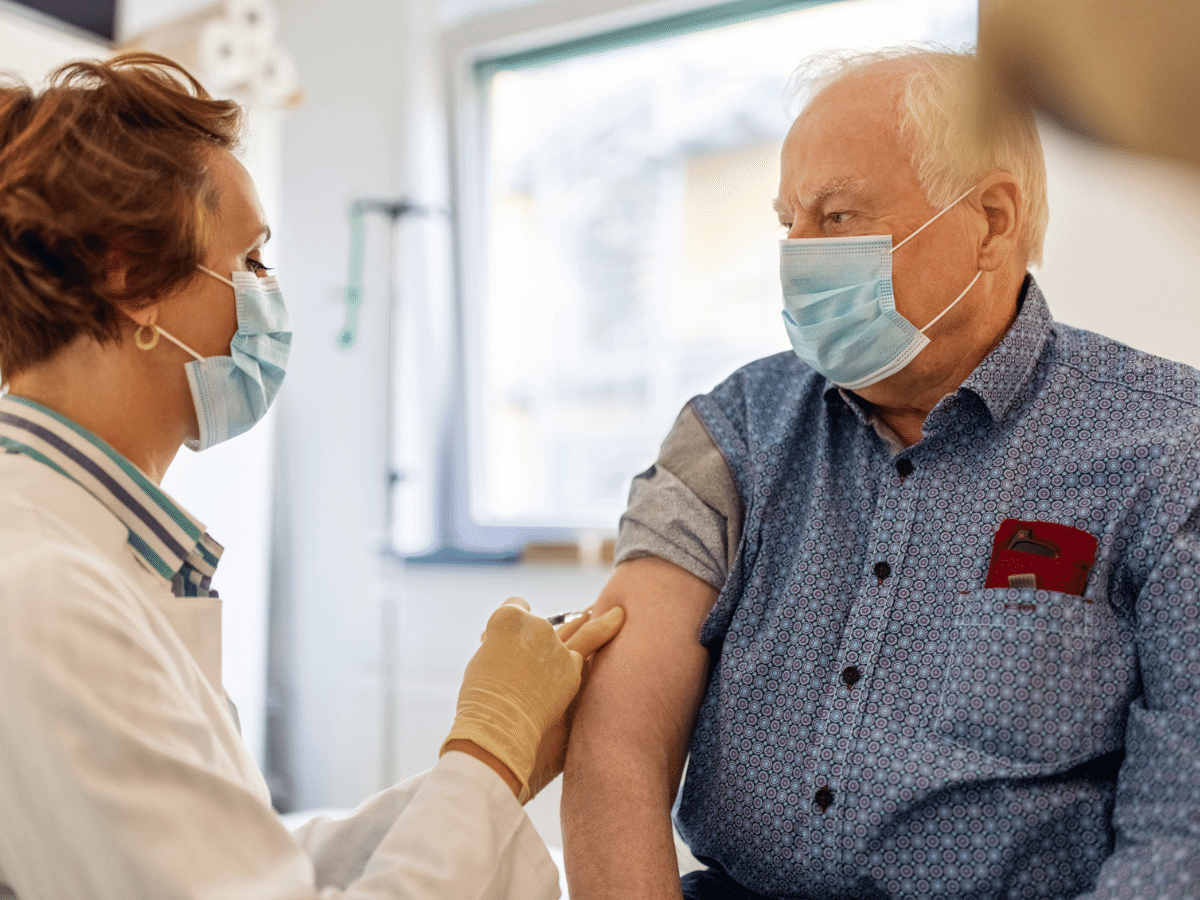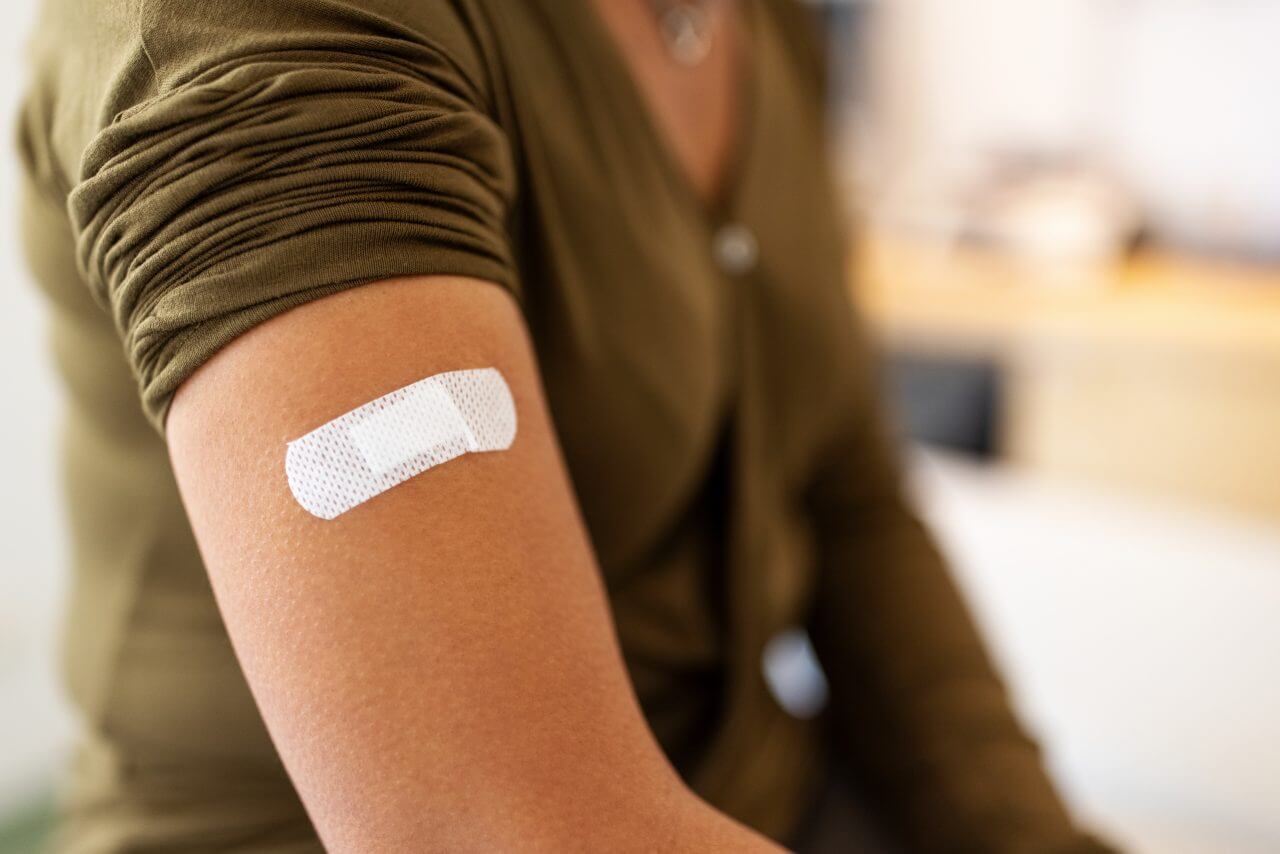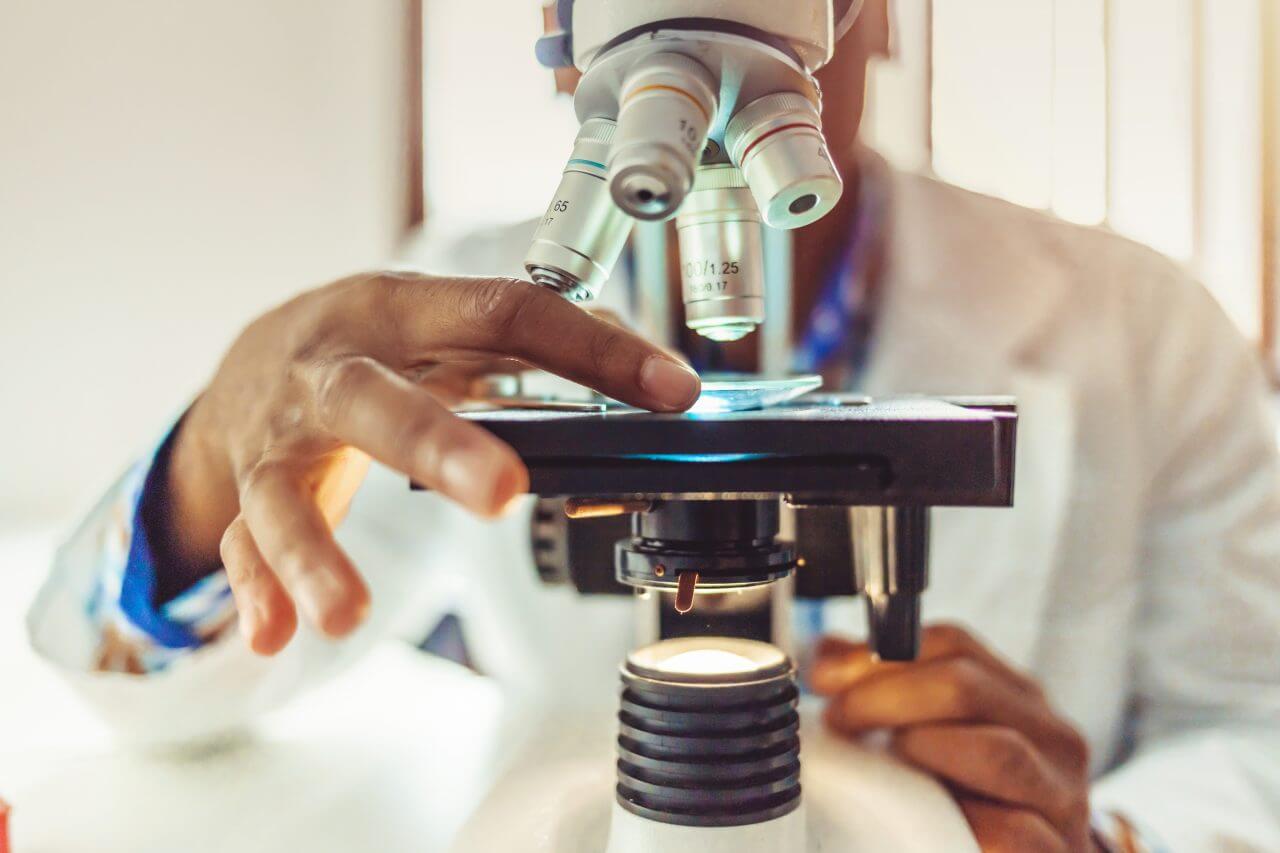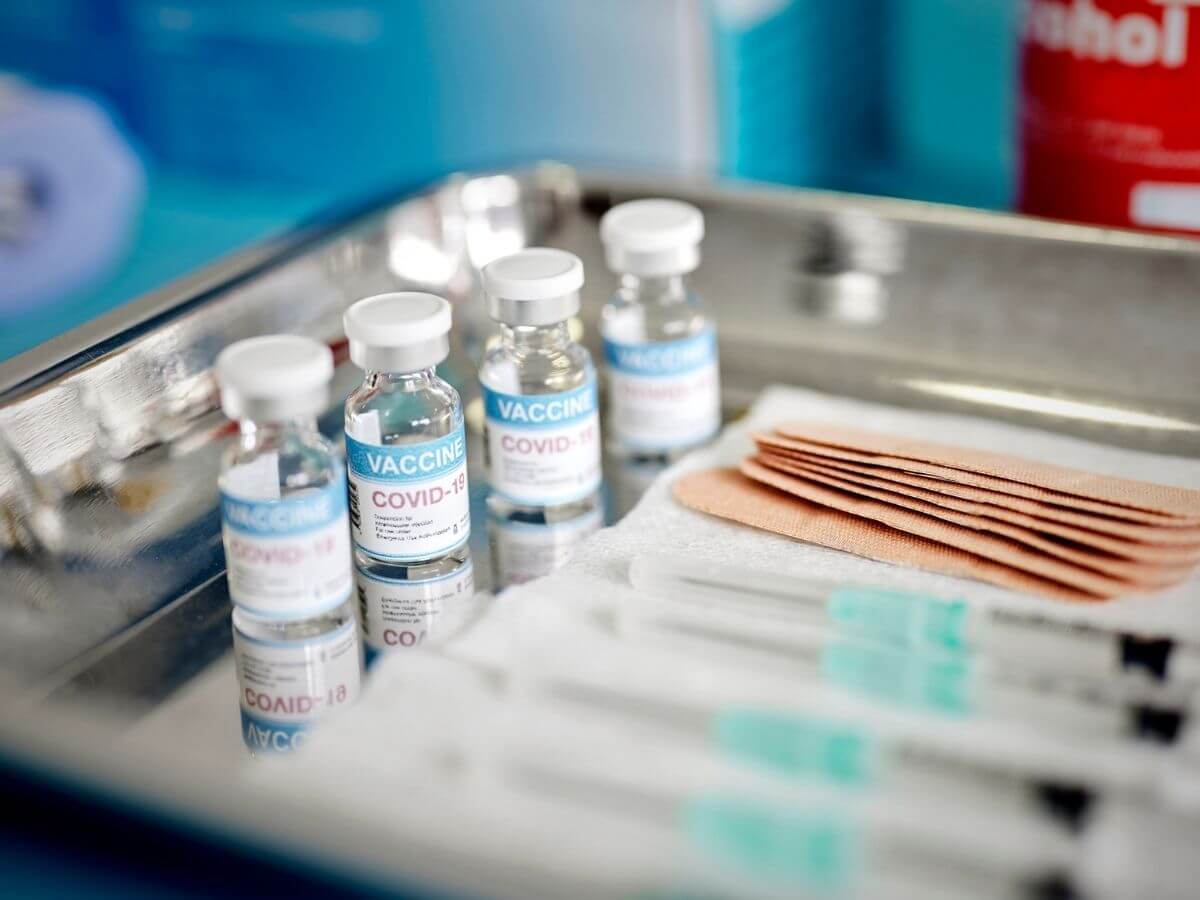Are Nanoparticles Used in the COVID-19 Vaccine?

The term “nanoparticles” is used to describe particles whose size can be measured in nanometers. (A nanometer is one-millionth of a millimeter.) In other words, very small particles. A strand of your hair is approximately 90,000 nanometers wide.
Nanotechnology is used in many fields, such as manufacturing. But it’s also used in developing medicines like vaccines. The Pfizer and Moderna COVID-19 vaccines both use nanoparticles called messenger RNA (mRNA).
How Do Nanoparticles Help the Body Fight COVID-19?
The mRNA in COVID-19 vaccines tells the body how to produce a type of protein that’s found on the coronavirus. Cells that take in this information start making that protein. The immune system then recognizes that the protein is present and develops antibodies to protect the body from it.
This process prepares the body to fight COVID-19 should a vaccinated person encounter the virus. Because the immune system is “primed” by the vaccine and ready to defend the body, the virus is unable to make a person seriously ill. If they get sick at all, they have mild to moderate symptoms rather than a case of COVID-19 that requires hospitalization and can, in some instances, be fatal.
Don’t take a chance with your health.
Getting the COVID-19 vaccine is the best way to prevent COVID-19 infection and end the pandemic. The vaccine cannot give you COVID-19, but it can help protect you from serious illness. Learn more about the COVID-19 vaccine and make a first, third, or booster vaccination appointment at a location near you.
Are COVID-19 Vaccines Containing Nanoparticles Safe?
While the COVID-19 vaccines that contain mRNA nanoparticles are new, the concept of using nanoparticles as part of “drug delivery systems” goes back to the 1960s. That’s when lipid nanoparticles were discovered.
The mRNA used in COVID-19 vaccines is fragile. If not protected in some way, it would dissolve before ever reaching the cells. Lipids are molecules like oils and fats that don’t dissolve in water. The makers of mRNA vaccines use those molecules to protect mRNA until it can reach the appropriate cells.
This approach is proven to be safe and effective. So, while “nanoparticles” may sound like something out of a science fiction movie, these particles are thoroughly studied and well understood by researchers, pharmaceutical companies, and doctors.
Get Vaccinated Against COVID-19 Today
If you have questions about nanoparticles and COVID-19 vaccines, your Baptist Health doctor is happy to answer them. They can tell you how the particles work in the body and reassure you that they handle their one task exactly as they should.
They can also talk with you about the data on mRNA vaccines in the millions of people who’ve received that type of vaccine — data that shows getting vaccinated is the best way to avoid becoming seriously ill with COVID-19.
If you don’t have a Baptist Health doctor, you can find a provider online. And there are many sites around the U.S., including through Baptist Health, where you can get a fast, free COVID-19 vaccine that will help protect you, your loved ones, and your community.
Next Steps and Useful Resources:
Schedule Your Vaccine Appointment
Start Your COVID-19 Test Online
What Is Monoclonal Antibody Treatment for COVID-19?
Why You Shouldn’t Use Ivermectin to Prevent or Treat COVID-19



